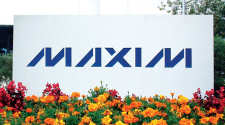 Maxim Integrated Products, a publicly-traded designer and manufacturer of semiconductor circuits and other analog and digital electronics, agreed on October 3 to pay the Bureau of Industry and Security (“BIS”) a civil penalty of $192,000 to settle 34 counts of alleged export violations charged by the agency. Of particular interest is the count relating to a release of controlled technology to an Iranian national in the United States. (Such releases are called, in Export Geek Speak, “deemed exports.”)
Maxim Integrated Products, a publicly-traded designer and manufacturer of semiconductor circuits and other analog and digital electronics, agreed on October 3 to pay the Bureau of Industry and Security (“BIS”) a civil penalty of $192,000 to settle 34 counts of alleged export violations charged by the agency. Of particular interest is the count relating to a release of controlled technology to an Iranian national in the United States. (Such releases are called, in Export Geek Speak, “deemed exports.”)
The deemed export in question, and the resulting charges, should serve as a reminder to companies not to forget about the broad swath of technology covered under Export Control Classification Numbers (ECCNs) in the E99 series, that is, ECCNs in the form xE99x, such as 5E992. It was exactly that ECCN that was involved in the Maxim settlement and it covers any “technology relating to any telecommunications equipment and other information security and containing encryption.” Unlike other ECCNs in this category, ECCN 5E992 is not dependent upon the strength of the encryption, the algorithm used, whether it’s asymmetrical or not, or the use of the encryption. It covers all technology for encryption for telecommunications or information security, with the only exceptions being the public domain and fundamental research exceptions found in section 734.3 of the Export Administration Regulations (“EAR”).
Because the scope of the technology controlled under ECCN 5E992 and under other E99 series ECCNS is quite broad, the controls imposed under those ECCNs only limit exports to those few countries subject to Anti-Terrorism (“AT”) controls, i.e., Cuba, North Korea, Iran, Sudan and Syria. So Myriad could have shared whatever they shared with their Iranian employees with foreign employees from most other countries. My suspicion is that many companies don’t focus on series E99 controls with respect to their deemed exports, but, as this case shows, they should.
One other point: under section 734.2(b)(2)(ii) of the EAR, the deemed export rules do not apply to foreign nationals who have been granted permanent residence or protected status. My guess is that the Iranian involved here was in the country on a family-related visa, which would allow a work authorization, but not the receipt of any controlled technology.
 Permalink
Permalink
Copyright © 2008 Clif Burns. All Rights Reserved.
(No republication, syndication or use permitted without my consent.)

 Posted by
Posted by  Category:
Category: 

